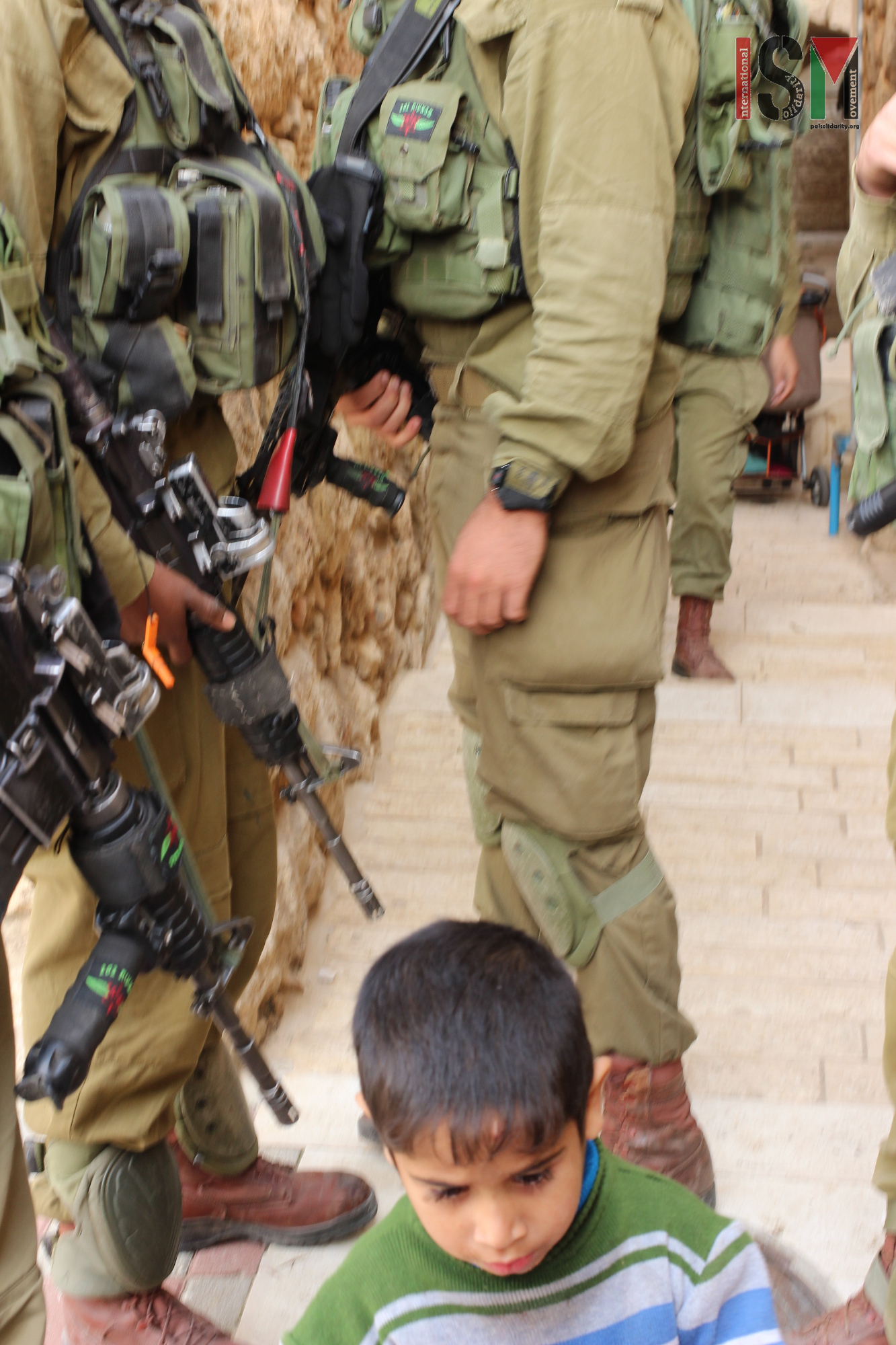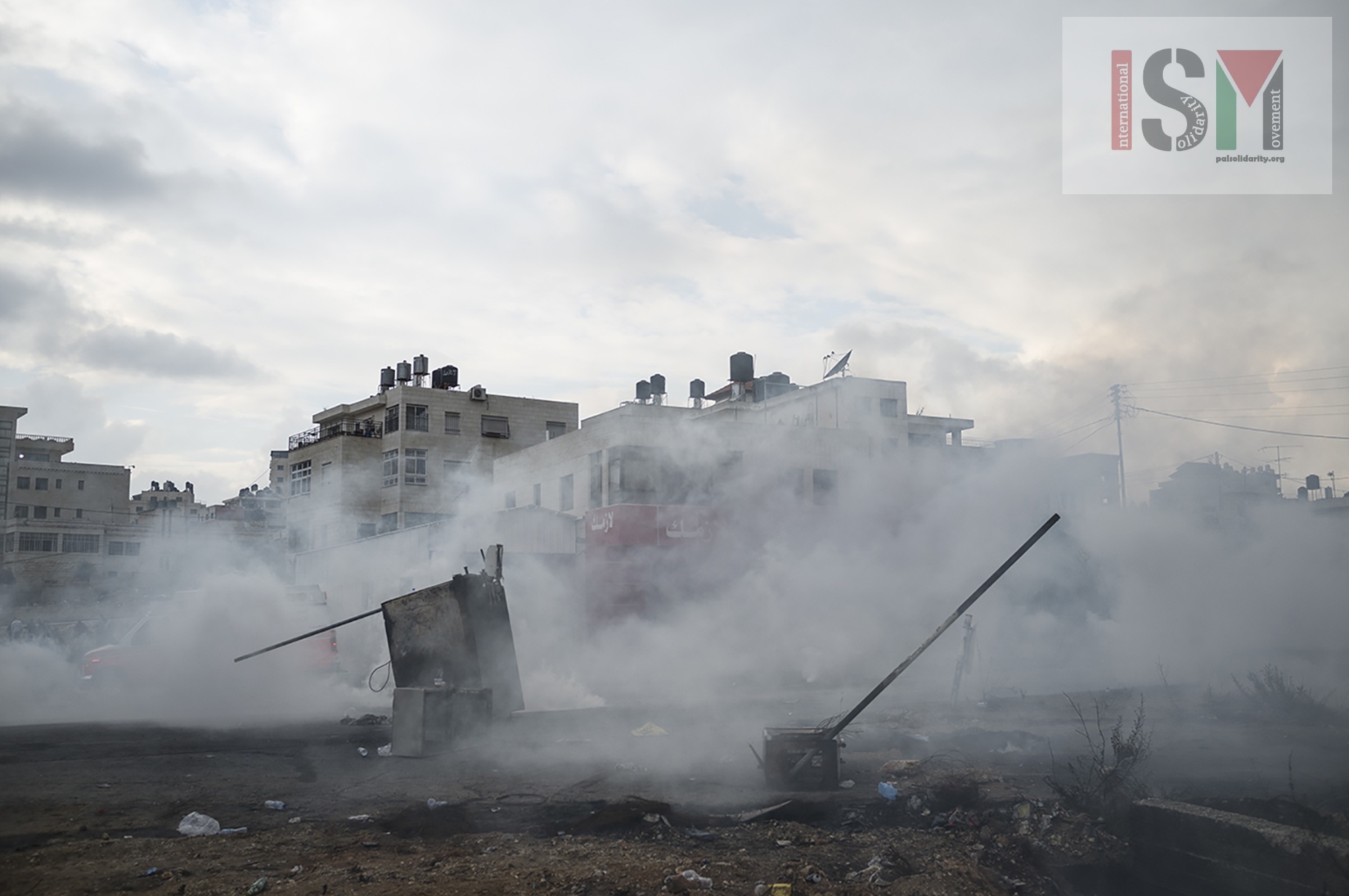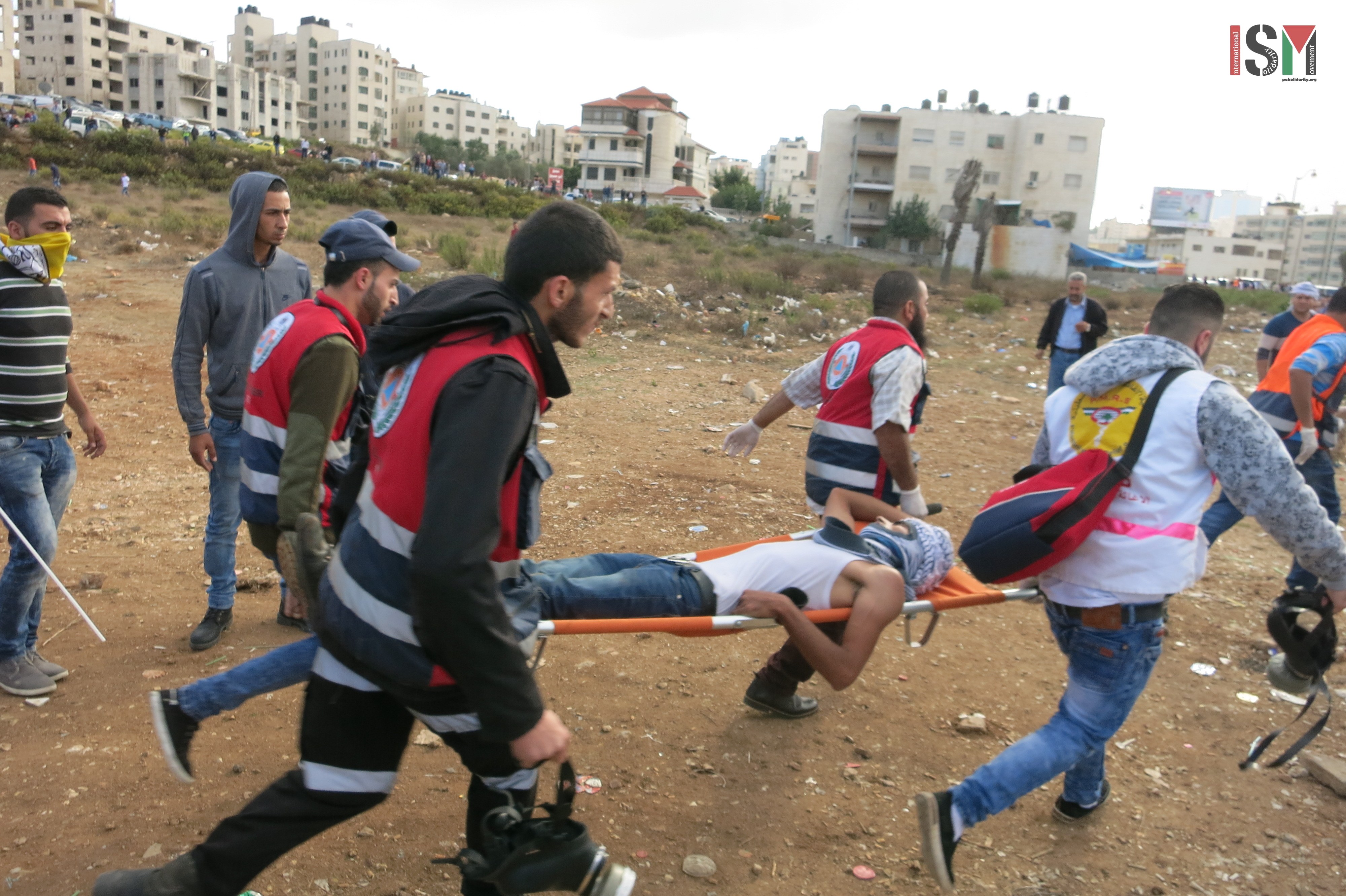Tag: Ramallah
-
Call from Palestine: Stop the execution of our children
27th November 2015 | International Solidarity Movement, al-Khalil team | Hebron, occupied Palestine We, the undersigned Palestinian political forces and organizations, appeal to local and international institutions, human rights organisations and democratic forces for immediate and decisive action concerning the execution of Palestinian children by Israeli occupation forces and settlers. To date, 18 Palestinian children…
-
Demonstration in Beit El violently attacked by Israeli forces
31st October 2015 | International Solidarity Movement, Nablus team | Ramallah, Occupied Palestine The recent escalation of force used in the occupied Palestinian Territories was clear yesterday, Friday 30th October, when clashes broke out at Beit El near Ramallah. The demonstration was met with extreme violence by the Israeli occupation forces, leaving 15 people injured…
-
Beit El demonstration under attack by Israeli forces after Martyr laid to rest
10th October 2015 | International Solidarity Movement, Al-Khalil team | Ramallah, occupied Palestine Less than one hour after the Halabi family laid their son, martyr Mohannad al-Halabi, to rest in a cemetery in Ramallah, violent confrontations broke out in the nearby Beit El area. In a continuation of the sharp escalation in violence seen across…



